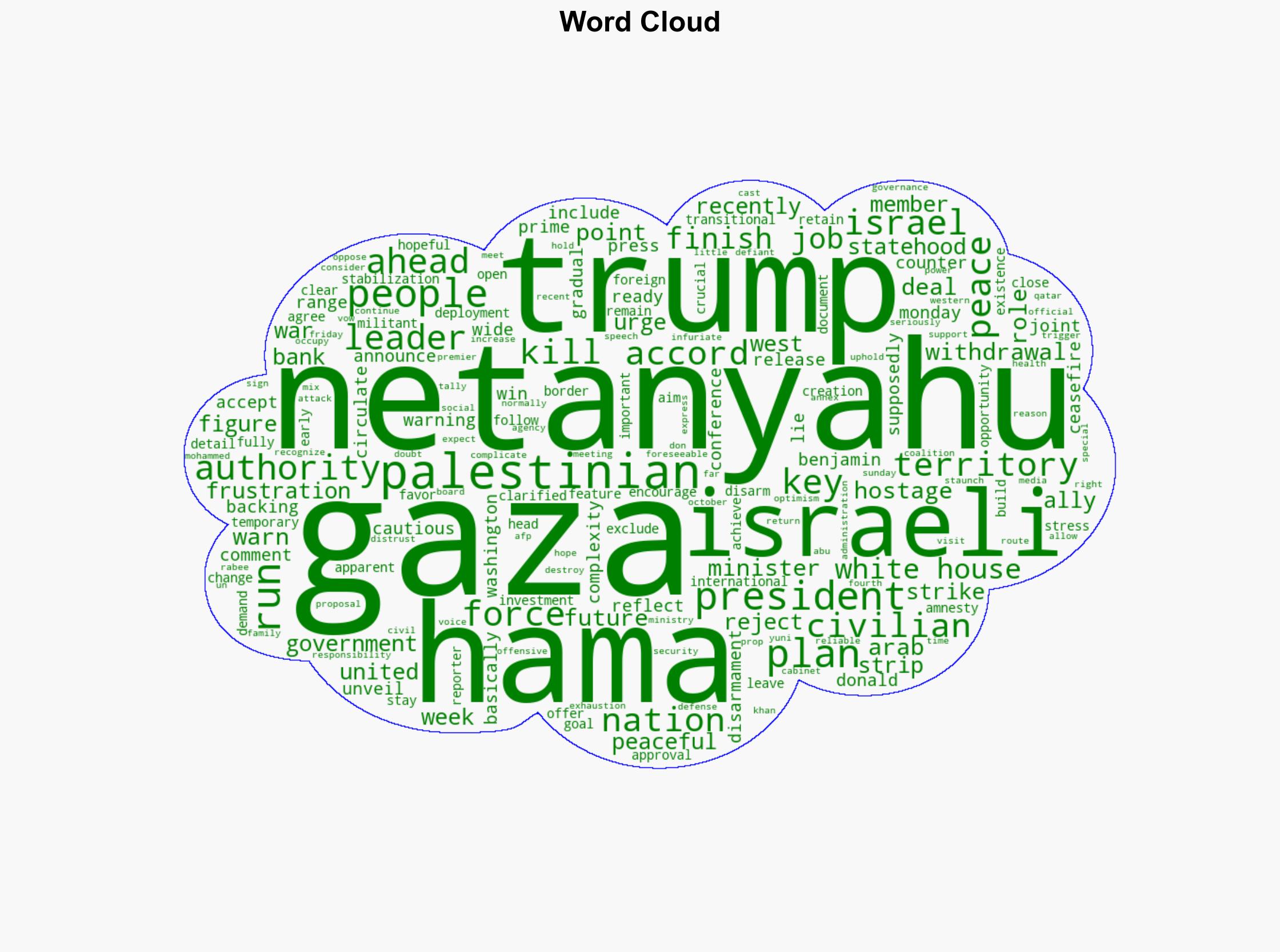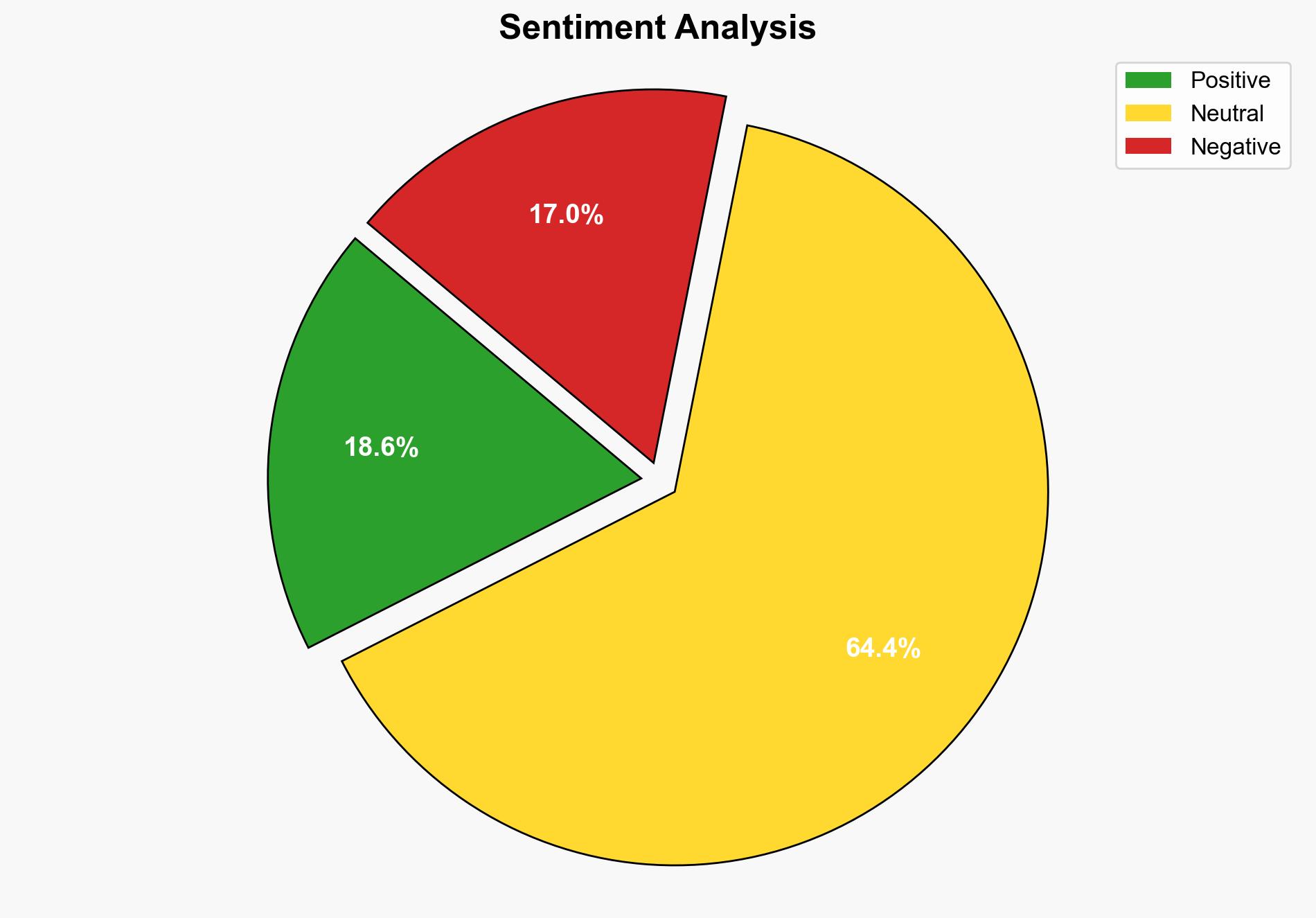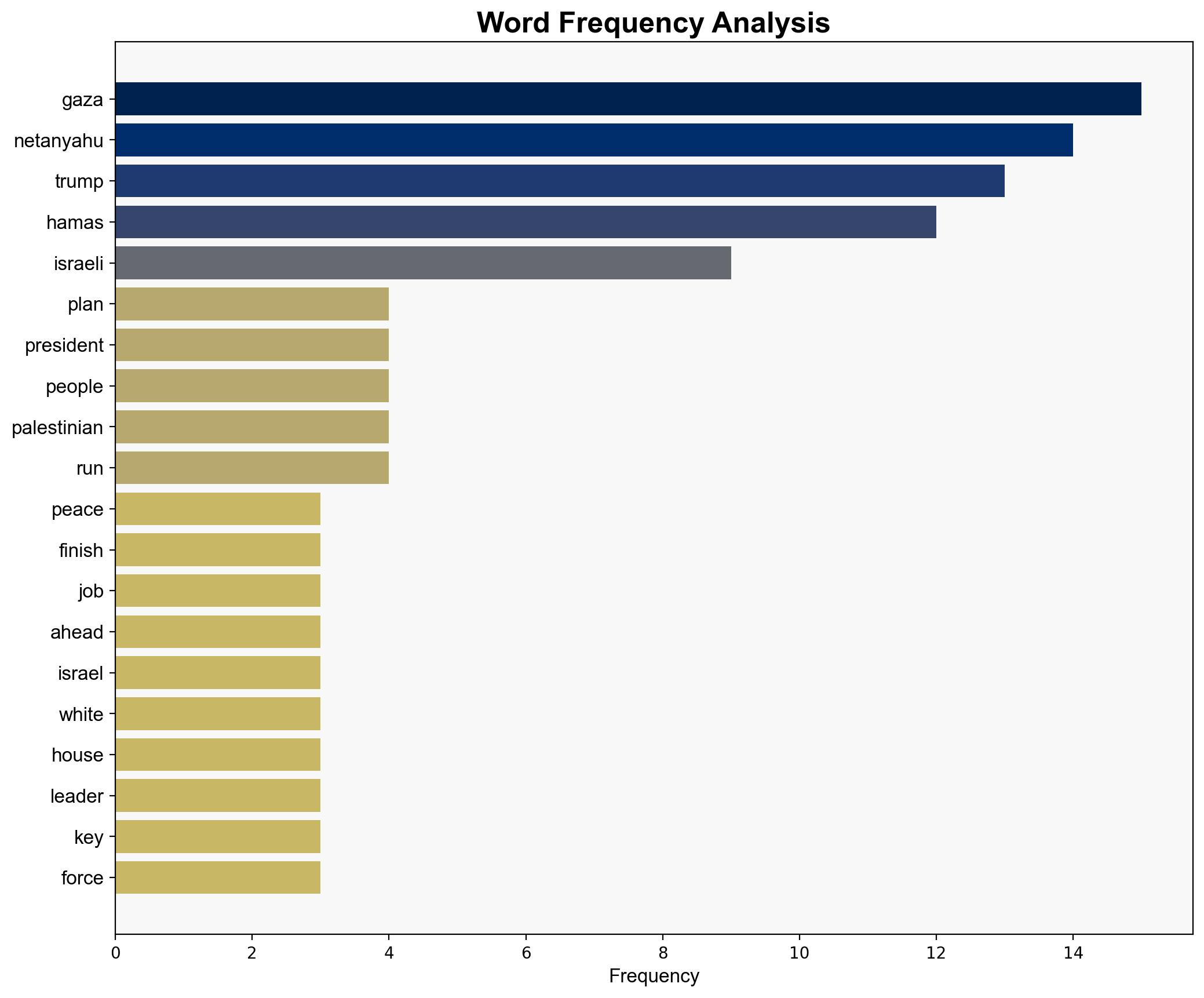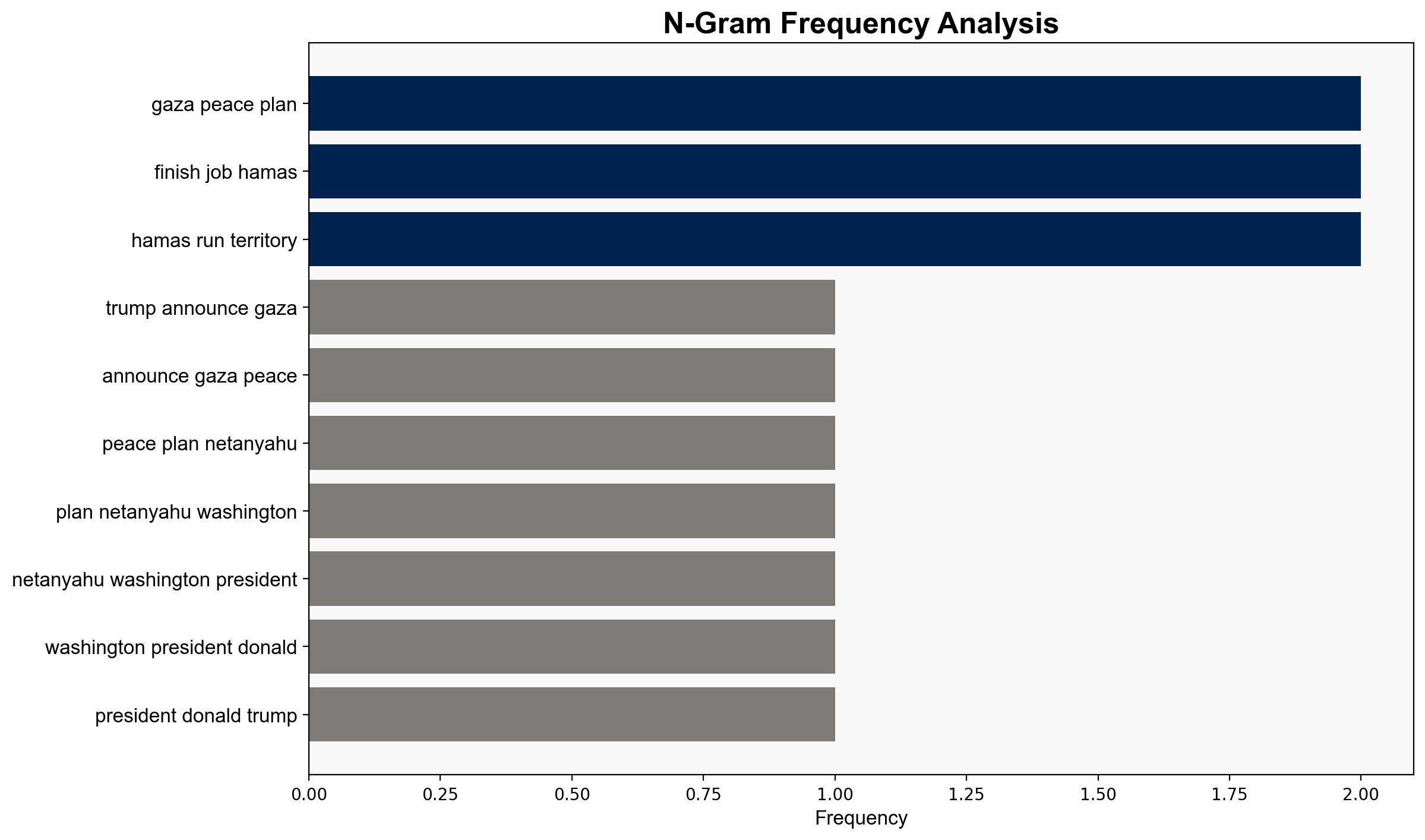Trump To Push Netanyahu On Gaza Peace Plan At White House – International Business Times
Published on: 2025-09-29
Intelligence Report: Trump To Push Netanyahu On Gaza Peace Plan At White House – International Business Times
1. BLUF (Bottom Line Up Front)
The most supported hypothesis is that the proposed Gaza peace plan will face significant challenges due to entrenched opposition from key stakeholders, particularly Hamas and elements within the Israeli government. Confidence level: Moderate. Recommended action: Engage in diplomatic efforts to address concerns of all parties and explore alternative frameworks for peace that may gain broader acceptance.
2. Competing Hypotheses
Hypothesis 1: The peace plan will lead to a temporary ceasefire and partial disarmament of Hamas, facilitated by international intervention and economic incentives. This hypothesis is supported by the plan’s inclusion of international stabilization forces and economic investment proposals.
Hypothesis 2: The peace plan will fail to achieve its objectives due to resistance from Hamas, skepticism from Palestinian civilians, and internal opposition within the Israeli government. This hypothesis is supported by Hamas’s outright rejection of the plan and the Israeli government’s mixed signals regarding future governance of Gaza.
3. Key Assumptions and Red Flags
– Assumption: International forces can effectively stabilize Gaza and enforce disarmament.
– Red Flag: Hamas’s rejection of the plan and Netanyahu’s emphasis on retaining security control suggest potential for continued conflict.
– Blind Spot: The plan’s reliance on economic incentives may underestimate the ideological and political motivations driving the conflict.
4. Implications and Strategic Risks
– The failure of the plan could lead to renewed violence, undermining regional stability.
– Economic incentives may not be sufficient to alter the strategic calculus of Hamas or hardline Israeli factions.
– Potential for increased tensions between Israel and its allies if the plan is perceived as biased or ineffective.
5. Recommendations and Outlook
- Engage regional stakeholders, including Egypt and Qatar, to mediate and provide alternative proposals.
- Scenario Projections:
- Best: Successful ceasefire and gradual disarmament, leading to long-term peace negotiations.
- Worst: Escalation of violence and further destabilization of the region.
- Most Likely: Stalemate with intermittent conflict and limited international intervention.
6. Key Individuals and Entities
– Donald Trump
– Benjamin Netanyahu
– Hamas leadership
– Key Arab leaders at the United Nations
7. Thematic Tags
national security threats, regional focus, peace negotiations, Middle East conflict





